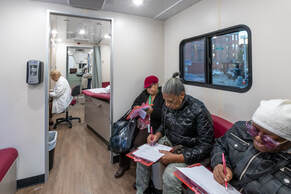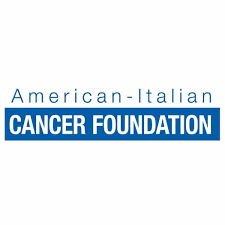$90,000 for 2024-2025
No-Cost Breast Cancer Screening Program
The Mobile, No-cost Breast Cancer Screening Program was launched by AICF in 1987 to promote early detection and breast health education in New York City’s underserved neighborhoods. AICF’s Mammogram Bus is a mobile unit that brings breast cancer screening services to communities with high breast cancer rates, low screening incidences, and significant socioeconomic needs. In the 37 years since the introduction of our program, AICF has provided mobile breast cancer screening services in New York City to over 122,000 medically underserved women.
Outreach and Education
AICF’s Mobile, No-cost Breast Cancer Screening Program promotes breast cancer early detection and education in New York City’s medically underserved neighborhoods. Through our screening program, women are provided with no-cost mammograms, clinical breast exams, and breast health education on a Mammogram Bus that travels to the 5 boroughs of New York City five days a week, all-year-round to provide life-saving breast cancer screening services to women ages 40-79 in neighborhoods with low income levels, limited screening access, and high incidences of breast cancer.
The goal of AICF is to make breast cancer screenings accessible to New York City’s most vulnerable populations: low income, medically-underserved, ethnically and linguistically marginalized women. We achieve this by offering:
- No out-of-pocket cost for the women we serve.
- Partnerships with an extensive network of more than 170 community sites. We partner with trusted community groups and civic leaders throughout New York City to eliminate cultural and linguistic barriers to regular screening and reduce the distrust of the healthcare system that many women feel.
- Comprehensive breast health education which ensures that women are aware of the importance of regular breast cancer screenings and feel empowered to make well-informed health decisions.
- A traveling Mammogram Bus that eliminates transportation and geographical obstacles to healthcare access by bringing screening services directly to patients’ neighborhoods.


